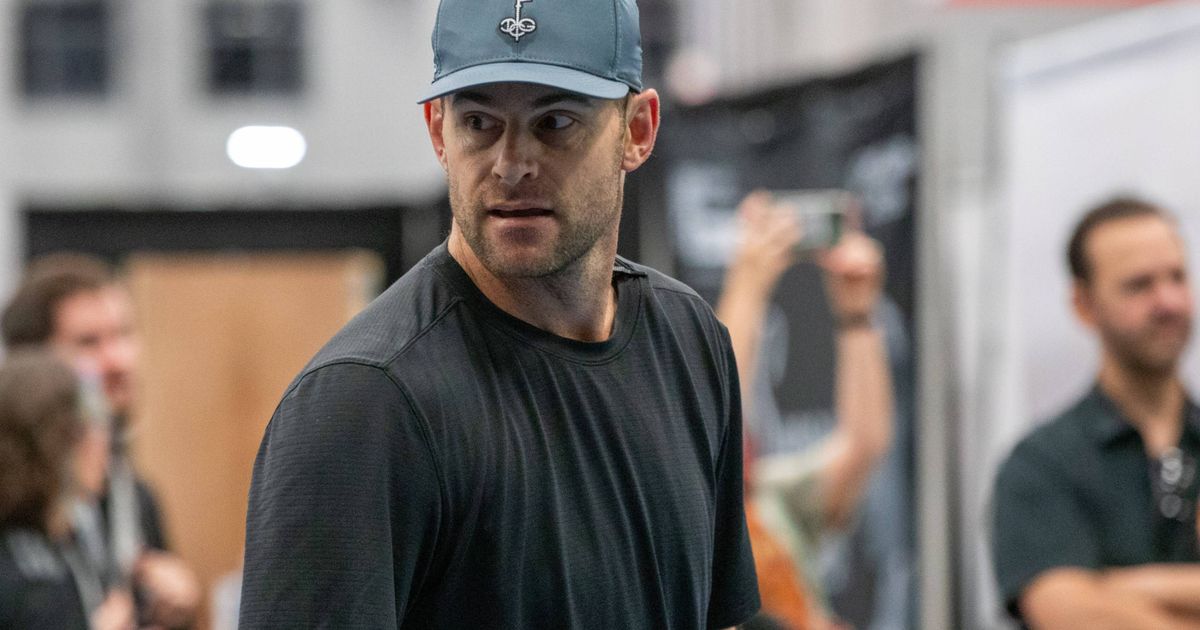Andy Roddick has never been afraid to speak his mind, and this time he didn’t hold back when reacting to Novak Djokovic’s recent comments about “monopolies” in tennis. On his Served podcast, the former world No. 1 questioned both the vagueness and structure of Djokovic’s message, calling for more transparency and concrete ideas behind the Professional Tennis Players Association (PTPA) that the Serb helped create.
Roddick began by acknowledging Djokovic’s passion for reform, but noted that the Serbian star’s words lack direction. “I think Novak is extremely well-intentioned,” Roddick said, “but at some point, if you’re going to come out and say some things, then say them.” His remarks came after Djokovic delivered a long statement in Riyadh, speaking alongside Dana White and Shaquille O’Neal about power, inequality, and representation in tennis.
During that panel, Djokovic declared that tennis has suffered from systemic control for decades. “In our sport there’s a big monopoly that has been there for decades,” the 24-time Grand Slam champion said. “That was the biggest inspiration for me and Vasek Pospisil. We founded a Professional Tennis Players Association, which is basically a union of players. We still don’t have a seat at the table where the decisions are being made — that’s the downside of our sport.”
Djokovic’s fiery speech drew attention worldwide, but Roddick believes the rhetoric must be followed by substance. He reminded listeners that while the PTPA acts like a union, it legally isn’t one. “I was specifically told by them that it’s not a union,” Roddick explained. “Well, it’s basically a union — but legally it’s not, because there are problems with that.” For Roddick, the distinction matters if the group truly wants to gain legitimacy and influence.
Roddick to Djokovic: “Let’s just come out and say it”
Roddick’s main frustration was the lack of clarity in Djokovic’s accusations. “Is that the tour? The Slams? The ITF? All of the above?” he asked. “When you say monopoly, okay — specifically which monopoly? This thing’s been around for a long time now. Let’s just come out and say it.” He urged Djokovic to abandon vague buzzwords and be direct about who or what he believes is blocking progress within tennis’ power structure.
Beyond terminology, Roddick argued that players themselves must decide who truly represents them. “I think there needs to be a union,” he said, “but the players need to decide who that is for them. You can’t just start a union and say we represent you. That’s not the way it works — and it hasn’t worked for the PTPA.” His words reflected a broader call for democratic decision-making among players rather than self-appointed leadership.
As Roddick pointed out, many of the PTPA’s efforts have been clouded by confusion — including letters to Grand Slam tournaments asking for higher pay and a seat at the decision-making table. Djokovic reportedly signed one early version of those letters but not the follow-up, further blurring his exact position. For Roddick, the movement’s lack of consistency risks undermining its own credibility in the locker room and beyond.
The American also expressed fatigue with the sport’s reliance on slogans rather than solutions. “I’d love to just plain-speak everything in tennis into reality,” he said. “I’m so sick of buzzwords. We all want the sport to be better — but what does that mean? There needs to be a specific plan. Otherwise, everyone who benefits from stalling will just keep kicking the can down the road.” His frustration echoed the sentiment of many players waiting for real, measurable reform.
Roddick didn’t just challenge Djokovic’s message — he questioned the overall direction of tennis politics. “We’ve been talking about the same problems for 20 years,” he said. “Every time someone brings up change, we end up in the same loop — who’s in charge, who speaks for the players, what’s fair. At some point, we’ve got to stop talking in circles and start fixing the actual structure.”
He also warned that charisma alone can’t drive progress. “Novak’s done more for the players than most,” Roddick acknowledged, “but this isn’t about being the loudest voice — it’s about being the most effective one. If you’re serious about changing the system, then show us the blueprint.”

